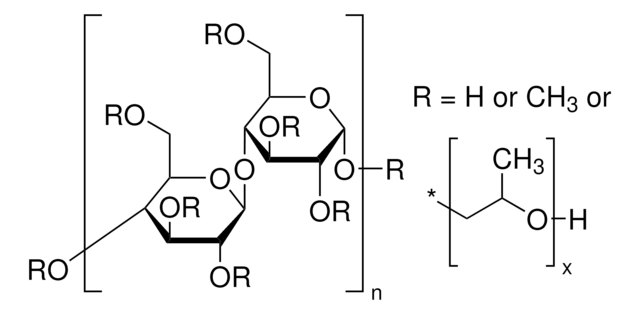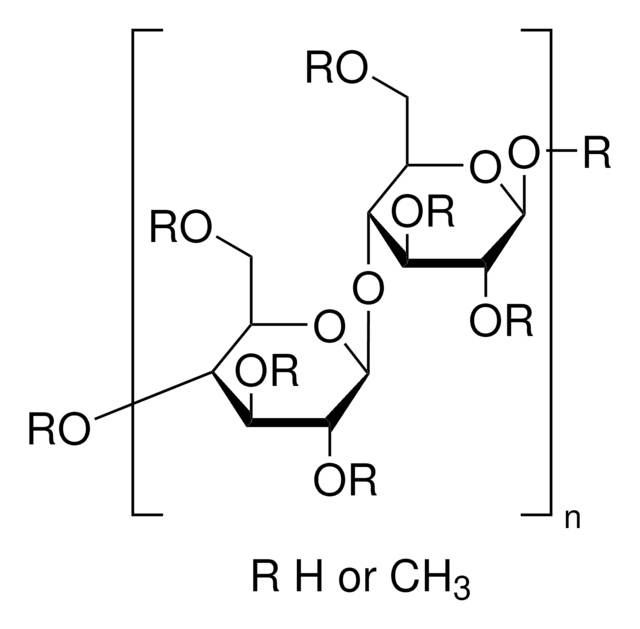H7509
(Hydroxypropyl)methyl cellulose
viscosity 2,600-5,600 cP, 2 % in H2O(20 °C)(lit.)
Sinónimos:
2-Hydroxypropyl methyl cellulose ether
About This Item
Productos recomendados
biological source
plant
Quality Level
form
powder
mol wt
~86 kDa
color
white to off-white
viscosity
2,600-5,600 cP, 2 % in H2O(20 °C)(lit.)
solubility
water: 10 mg/mL, clear to very slightly hazy, colorless
storage temp.
room temp
InChI
1S/C36H70O19.C20H38O11/c1-19(37)9-45-17-27-29(47-11-21(3)39)31(48-12-22(4)40)34(51-15-25(7)43)36(54-27)55-30-28(18-46-10-20(2)38)53-35(52-16-26(8)44)33(50-14-24(6)42)32(30)49-13-23(5)41;1-21-9-11-13(23-3)15(24-4)18(27-7)20(30-11)31-14-12(10-22-2)29-19(28-
¿Está buscando productos similares? Visita Guía de comparación de productos
General description
Application
- as a viscosity modifier in the preparation of printable ink
- as a viscosifier in the preparation of hydroxyapatite (HAP) suspension
- in the preparation of HPMC gels and composite gels
Biochem/physiol Actions
Features and Benefits
Other Notes
Storage Class
11 - Combustible Solids
wgk_germany
WGK 1
flash_point_f
Not applicable
flash_point_c
Not applicable
ppe
Eyeshields, Gloves, type N95 (US)
Elija entre una de las versiones más recientes:
¿Ya tiene este producto?
Encuentre la documentación para los productos que ha comprado recientemente en la Biblioteca de documentos.
Los clientes también vieron
Nuestro equipo de científicos tiene experiencia en todas las áreas de investigación: Ciencias de la vida, Ciencia de los materiales, Síntesis química, Cromatografía, Analítica y muchas otras.
Póngase en contacto con el Servicio técnico



